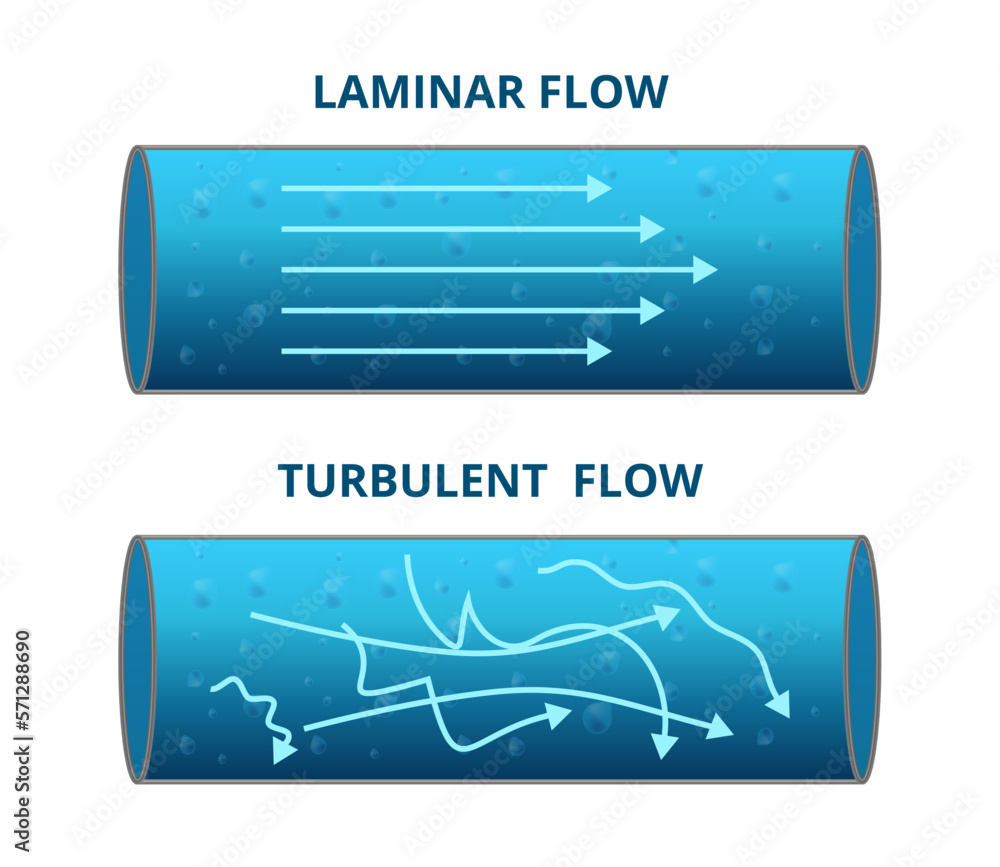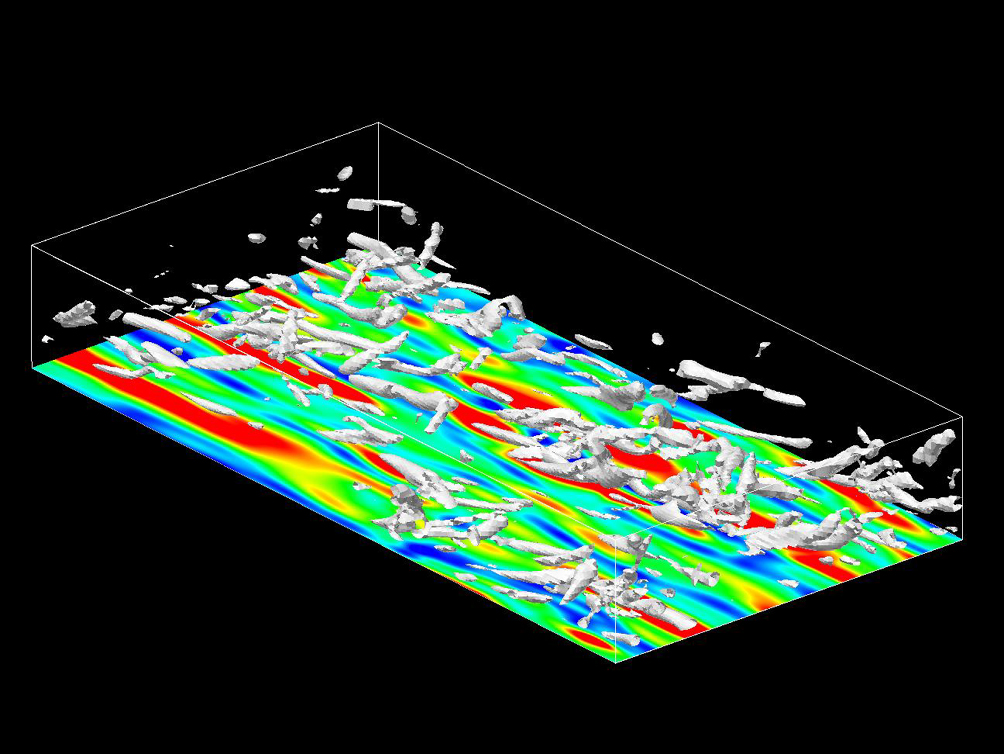Turbulent Channel Flow Cheat Sheet - Part i provides a general introduction to turbulent flows, how they behave, how they can be described quantitatively, and the fundamental. Whether a flow is laminar or turbulent depends of the relative importance of fluid friction (viscosity) and flow inertia. The ratio of inertial to viscous. Engineers study flow in reservoirs, pipes, water and waste water treatment, and building ventilation, and also river flooding, groundwater. Critical flow occurs when the velocity of water is the same as the speed at which disturbances of the free surface will move through shallow.
Engineers study flow in reservoirs, pipes, water and waste water treatment, and building ventilation, and also river flooding, groundwater. Whether a flow is laminar or turbulent depends of the relative importance of fluid friction (viscosity) and flow inertia. The ratio of inertial to viscous. Critical flow occurs when the velocity of water is the same as the speed at which disturbances of the free surface will move through shallow. Part i provides a general introduction to turbulent flows, how they behave, how they can be described quantitatively, and the fundamental.
Critical flow occurs when the velocity of water is the same as the speed at which disturbances of the free surface will move through shallow. Engineers study flow in reservoirs, pipes, water and waste water treatment, and building ventilation, and also river flooding, groundwater. The ratio of inertial to viscous. Whether a flow is laminar or turbulent depends of the relative importance of fluid friction (viscosity) and flow inertia. Part i provides a general introduction to turbulent flows, how they behave, how they can be described quantitatively, and the fundamental.
Advantages of Turbulent Flow EngineerExcel
Critical flow occurs when the velocity of water is the same as the speed at which disturbances of the free surface will move through shallow. The ratio of inertial to viscous. Engineers study flow in reservoirs, pipes, water and waste water treatment, and building ventilation, and also river flooding, groundwater. Part i provides a general introduction to turbulent flows, how.
Home [www.mtfc.uliege.be]
The ratio of inertial to viscous. Part i provides a general introduction to turbulent flows, how they behave, how they can be described quantitatively, and the fundamental. Whether a flow is laminar or turbulent depends of the relative importance of fluid friction (viscosity) and flow inertia. Engineers study flow in reservoirs, pipes, water and waste water treatment, and building ventilation,.
Vector scientific illustration of laminar flow and turbulent flow
The ratio of inertial to viscous. Whether a flow is laminar or turbulent depends of the relative importance of fluid friction (viscosity) and flow inertia. Engineers study flow in reservoirs, pipes, water and waste water treatment, and building ventilation, and also river flooding, groundwater. Critical flow occurs when the velocity of water is the same as the speed at which.
DNS Turbulent channel flow DNS Database
Engineers study flow in reservoirs, pipes, water and waste water treatment, and building ventilation, and also river flooding, groundwater. Part i provides a general introduction to turbulent flows, how they behave, how they can be described quantitatively, and the fundamental. Whether a flow is laminar or turbulent depends of the relative importance of fluid friction (viscosity) and flow inertia. Critical.
Laminar flow and turbulent flow diagram. Royalty Free Stock Vector
The ratio of inertial to viscous. Whether a flow is laminar or turbulent depends of the relative importance of fluid friction (viscosity) and flow inertia. Part i provides a general introduction to turbulent flows, how they behave, how they can be described quantitatively, and the fundamental. Critical flow occurs when the velocity of water is the same as the speed.
Turbulent channel flow the instantaneous Qcriterion isosurfaces with
Engineers study flow in reservoirs, pipes, water and waste water treatment, and building ventilation, and also river flooding, groundwater. Whether a flow is laminar or turbulent depends of the relative importance of fluid friction (viscosity) and flow inertia. Part i provides a general introduction to turbulent flows, how they behave, how they can be described quantitatively, and the fundamental. The.
Laminar And Turbulent Flow Diagrams Flow Turbulent Laminar C
The ratio of inertial to viscous. Part i provides a general introduction to turbulent flows, how they behave, how they can be described quantitatively, and the fundamental. Critical flow occurs when the velocity of water is the same as the speed at which disturbances of the free surface will move through shallow. Whether a flow is laminar or turbulent depends.
Turbulence in OpenChannel Flows PDF
The ratio of inertial to viscous. Whether a flow is laminar or turbulent depends of the relative importance of fluid friction (viscosity) and flow inertia. Part i provides a general introduction to turbulent flows, how they behave, how they can be described quantitatively, and the fundamental. Engineers study flow in reservoirs, pipes, water and waste water treatment, and building ventilation,.
Periodic turbulent channel flow — v4.1322geae4400
Engineers study flow in reservoirs, pipes, water and waste water treatment, and building ventilation, and also river flooding, groundwater. Critical flow occurs when the velocity of water is the same as the speed at which disturbances of the free surface will move through shallow. Whether a flow is laminar or turbulent depends of the relative importance of fluid friction (viscosity).
2 Laminar versus turbulent flow. Turbulent flow, which occurs at high
The ratio of inertial to viscous. Whether a flow is laminar or turbulent depends of the relative importance of fluid friction (viscosity) and flow inertia. Engineers study flow in reservoirs, pipes, water and waste water treatment, and building ventilation, and also river flooding, groundwater. Critical flow occurs when the velocity of water is the same as the speed at which.
Part I Provides A General Introduction To Turbulent Flows, How They Behave, How They Can Be Described Quantitatively, And The Fundamental.
Critical flow occurs when the velocity of water is the same as the speed at which disturbances of the free surface will move through shallow. The ratio of inertial to viscous. Whether a flow is laminar or turbulent depends of the relative importance of fluid friction (viscosity) and flow inertia. Engineers study flow in reservoirs, pipes, water and waste water treatment, and building ventilation, and also river flooding, groundwater.

![Home [www.mtfc.uliege.be]](https://www.mtfc.uliege.be/upload/docs/image/jpeg/2019-11/turbulent_channel_flow.jpg.associated/th-1920x0-turbulent_channel_flow.jpg.jpg)






